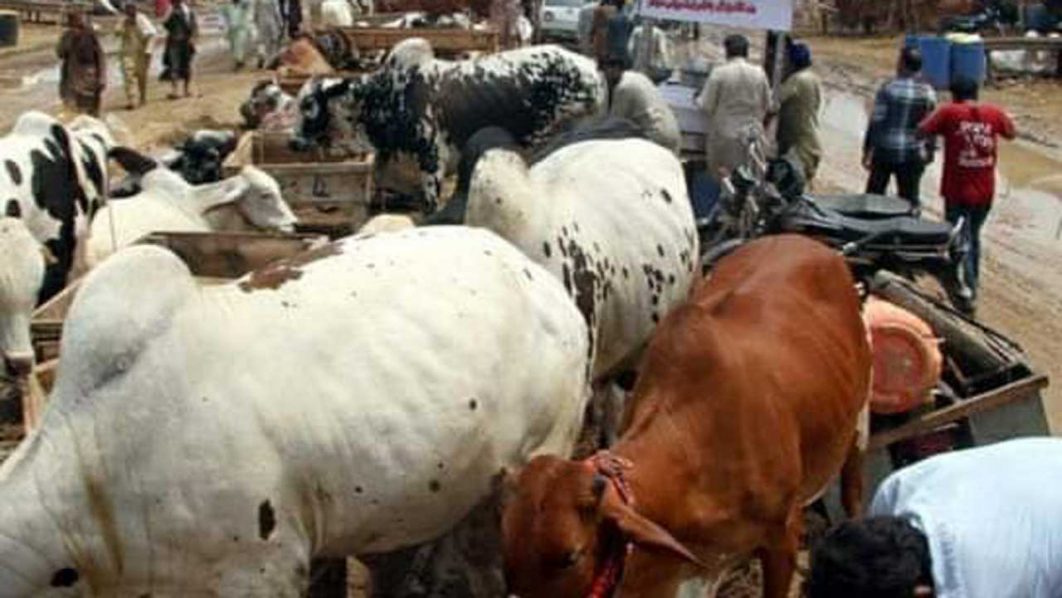
Palpable fear has gripped stakeholders in livestock industry following the outbreak of cow disease – haemorrhagic septicaemia, which has killed over 2,000 herds within few days.
Currently, stakeholders in the cattle business are entertaining fears that this development is capable of aggravating the current economic woes in the country, considering the threat posed by this disease.
Hemorrhagic septicaemia is a bacterial disease caused by Pasteurella multocida, affecting animals, particularly cattle, buffalo and sheep. It is characterised by high fever, septicaemia (blood infection), hemorrhaging (bleeding) in various organs and inflammation of the lungs, liver and spleen.
Its symptoms include sudden onset of high fever, difficulty in breathing, discharge from the nose and mouth, lethargy, refusal to eat, swollen lymph nodes, abdominal pain and bloody diarrhea.
Reports have it that humans can contract hemorrhagic septicaemia from infected animals, as the bacteria pasteurella multocida can be transmitted to humans. Human symptoms may include skin lesions or abscesses, cellulitis (skin infection), lymphangitis (inflammation of lymph vessels), septicaemia (blood infection) and pneumonia.
In rare cases, the disease can lead to more severe complications in humans such as, meningitis, endocarditis (heart infection) and osteomyelitis (bone infection).
Though this disease is still limited to Taraba State, Mambilla Plateau, in Sardauna Council to be precise, but the outbreak has raised serious concern about the safety of beef across the country.
The apprehensions, growing on daily basis, as observed by The Guardian, is necessitated by the huge number of cattle that have so far been confirmed dead following the outbreak of the disease in several communities in the council area.
Villages mostly affected by the outbreak include, Dorofi, Kwarakwara, Furmi, Mayo-Ngada, to mention a few. At the time of filing this report, affected cattle owners, who have continued to count their losses, are seeking urgent intervention from both the state and the Federal Governments.
Narrating their ordeals, some of the cattle rearers who claimed to have lost several numbers of herds, said they are currently in debt as the money invested in the business were loans obtained from financial institutions.
One of them, Saleh Ardo, who disclosed that he has so far lost over 15 cows, said his current worry is how to repay the loan he obtained from his bank to purchase the cows.
Ardo, who spoke via an interpreter, said: “I am pleading that the state government and other well to do individuals come to my rescue to repay this debt.”
Aligning his weight to that of Ardo, another farmer, Samaila Jibo, who has so far lost over 27 herds, said this is the first time he is witnessing such an outbreak.
Jibo, who could not ascertain the causes of the disease, said: “I only woke up penultimate Tuesday and discovered that some of my cows were very weak and could not produce milk as expected of them. Some of them even went as far as having nasal discharge and difficulty in breathing.”
A beef seller in one of the markets, Sadiq Usman, who was visibly dejected, expressed concern over the significant drop in customers’ patronage. He noted that the outbreak has had a noticeable impact on their businesses, emhasising that the havoc wrecked by the epidemic, if not urgently addressed, would soon crippled beef businesses across the entire axis of the state and beyond.
The leaders of the Fulani community in the affected council, led by Alhaji Saidu Bawa, Sarkin Fulani of Sardauna Council, who regretted that over 2,000 cows have been killed by the disease, praised the swift reaction of the incumbent governor.
While commending the governor’s prompt action in addressing the disaster, he emphasised the need for him to as well put in place mechanisms that will help in cushioning the negative effects on the affected cattle owners.
The council chairman, Mohammed Umar, who could not fathom how the disease came about, has restricted the movement of cattle in and outside the council.The Deputy Director, Veterinary Services, Ministry of Agriculture and Food Security, Dr. Jonathan Zeku, solicited support from the people to enable his team treat and vaccinate the remaining cows.
On his part, the Commissioner of Agriculture and Food Security, Professor Nicholas Namessan, said government, is leaving no unturned, in order to curtail the situation.






